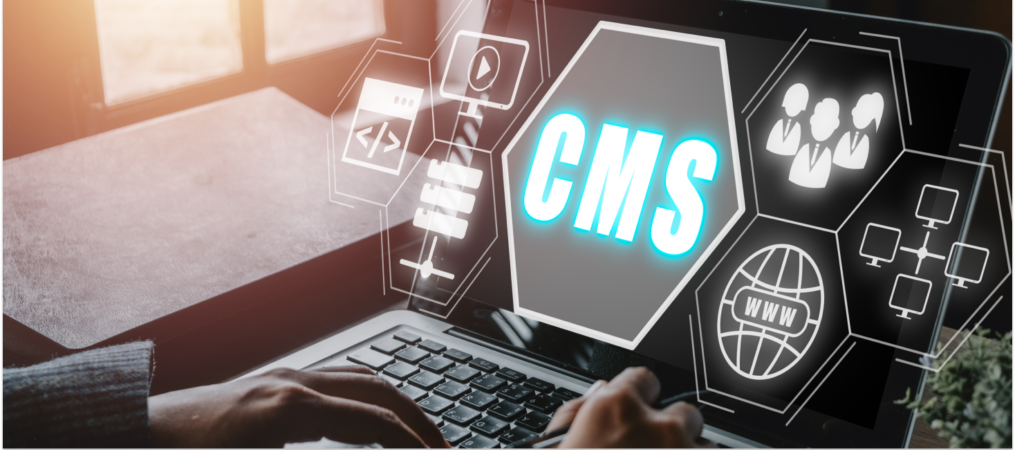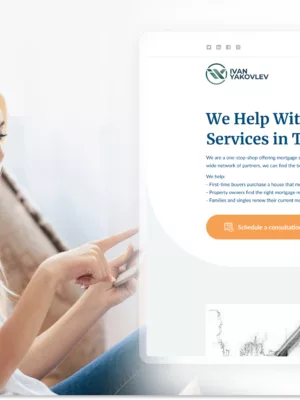
Choosing a content management system is like selecting a long-term business partner—get it right, and your digital presence thrives. Get it wrong, and you're facing significant operational challenges.
With over a decade specializing in web design and digital services and implementing robust CMS platforms across industries, our team has seen the real-world impact of this decision. We've refined our expertise working with startups finding their footing, mid-sized companies scaling their operations, and enterprises managing complex content needs.
Through these implementations, we've identified the salient factors that determine scalability and growth—practical insights that will help you make the right choice for your business.
1. User-Friendliness & Team Capability
At Convergine, we've observed that platforms vary significantly in complexity. The right choice must align with both current capabilities and future operational needs. Enterprise-level CMS platforms demand dedicated technical teams and developers, while mid-range solutions work best with teams having basic technical understanding. Basic platforms, based on our experience with non-technical teams, succeed through intuitive interfaces.
Our implementations have shown that success depends heavily on proper training allocation. Enterprise solutions demand structured, multi-phase training programs, while standard platforms typically require fundamental training in content workflows and basic system management. This pattern has remained consistent across industries and organization sizes.
We've identified critical operational factors that consistently affect content management efficiency:
- Content publishing workflows
- Asset management complexity
- User access control
- Template management
- System maintenance needs
While platforms like WordPress and Drupal are powerful solutions, the next sections will show why certain businesses require a different approach to content management—one that might better align with your specific needs.
2. Scalability & Performance
Scalability and performance are critical factors that often get overlooked in the initial CMS selection process. A platform's ability to grow and maintain performance under pressure directly impacts business operations.
We have gathered that enterprise-level platforms excel at handling large content volumes and traffic loads simultaneously, while mid-range solutions often hit performance bottlenecks as content libraries expand. Basic platforms, while initially sufficient, typically require significant optimization as content and traffic grow. Performance issues emerge in specific areas—from content delivery speed and database response times to media handling capabilities and traffic spike management.
Consider these essential questions when evaluating CMS performance needs:
- What are your monthly traffic projections?
- How fast is your content library growing?
- Do you experience seasonal traffic spikes?
- What's your acceptable page load time?
- How many concurrent users need to be supported?
3. Integration Capabilities
Integration capabilities determine how well a CMS platform connects with existing business tools and systems. The ability to create seamless workflows across different platforms directly impacts operational efficiency.
Beyond basic functionality, enterprise platforms typically offer robust API frameworks and pre-built connections with major business tools, while mid-range solutions often require custom development. Basic platforms generally limit integration options to popular third-party services. Modern operations demand flexible API structures, with RESTful APIs and GraphQL implementations offering efficient data management.
Important things to ponder:
- Which existing business tools need CMS connectivity?
- Is real-time data synchronization necessary?
- What level of API access will operations require?
- Are custom integrations needed for specific workflows?
- How will integrated systems be maintained?
4. Security & Maintenance
Security and maintenance requirements vary significantly across CMS platforms, directly impacting long-term operational costs and site reliability. Proper security measures and maintenance procedures are crucial for protecting business assets and ensuring consistent performance.
Enterprise platforms offer comprehensive security frameworks with regular updates and dedicated support teams, while mid-range solutions typically provide basic security features that require additional configuration. Basic platforms often rely on third-party plugins and manual updates, which can create potential vulnerabilities if not managed properly.
Questions to ask when evaluating CMS security needs:
- How sensitive is your business data?
- What compliance requirements must you meet?
- Who will manage system updates?
- What backup procedures are necessary?
- How will you handle security incidents?
5. Cost Structure
Understanding CMS cost structure goes beyond initial licensing fees. Total cost of ownership includes implementation, maintenance, hosting, training, and potential customization expenses. Each platform tier comes with distinct cost implications that affect long-term business operations.
Different CMS platforms structure their costs uniquely. Enterprise solutions often require significant upfront investment but include comprehensive support and features. Mid-range platforms typically offer subscription-based pricing with optional add-ons, while basic solutions might appear cost-effective initially but incur additional expenses through necessary extensions and customizations.
Key cost factors to evaluate:
- Initial licensing and setup fees
- Ongoing maintenance costs
- Technical support requirements
- Upgrade and scaling expenses
- Training and staffing needs
6. Technical Requirements
Technical requirements determine the infrastructure needed to run your CMS effectively. From hosting environments to server configurations, these specifications directly impact system performance and reliability. Understanding these requirements helps prevent costly infrastructure changes after implementation.
Each CMS tier demands different technical resources. Enterprise platforms often require dedicated servers and specific technology stacks, while mid-range solutions can operate on standard hosting environments with some optimizations. A critical technical consideration is headless architecture, where content management is separated from content presentation. Modern CMS platforms offer headless capabilities essential for multi-channel content delivery, while traditional systems like WordPress do not. Basic platforms typically run on shared hosting but may need upgrades as traffic grows.
Questions to ask when assessing technical needs:
- What are your current hosting capabilities?
- Do you have specific server requirements?
- Is cloud infrastructure preferred?
- Will you need headless architecture for multi-channel delivery?
- What development resources are available?
- How will the system be maintained?
7. Content Structure Flexibility
Content structure flexibility determines how effectively a CMS can adapt to changing business needs. The ability to create, modify, and manage different content types impacts long-term content operations and the ability to deliver consistent user experiences across channels.
Different CMS platforms offer varying levels of content structure control. Enterprise solutions provide advanced content modeling with custom fields and relationships, while mid-range platforms offer predefined content types with some customization options. Basic platforms typically limit content structures to standard formats like posts and pages.
Questions to consider for content flexibility:
- What content types do you need?
- How often do content structures change?
- Do you need multi-channel content delivery?
- What content relationships are required?
- How complex are your templates?
Selecting a CMS with the right content flexibility ensures your platform can grow with your business needs while maintaining efficient content operations.
Convergine's Solution

If you've read this far, you understand the complexities of choosing the right CMS for your business. Throughout the previous sections, we promised to reveal a different approach to content management—one that aligns with modern business needs. After working with various CMS platforms over the past decade, including WordPress and other popular solutions, we have not encountered a platform that matches Craft CMS's capabilities.
As Craft CMS enterprise partners, we've implemented solutions that address all the critical factors we've discussed. Craft CMS puts content first, freeing you from rigid CMS structures while providing enterprise-grade capabilities. Its modern approach lets you create experiences specific to your project without compromising content integrity.
The platform excels in three core areas that matter most to businesses:
- Intuitive authoring with unlimited flexibility
- World-class localization capabilities
- Extensive integration options with leading marketing tools
From design portfolios to multinational marketing websites, Craft CMS adapts and scales to your specific needs while maintaining powerful features like effortless site management, robust security, and seamless third-party connections.
As verified Craft CMS Commerce & Enterprise partners, we bring proven expertise to ensure your platform aligns with both current needs and future growth. Our implementations demonstrate how Craft CMS delivers the security, scalability, and flexibility modern businesses demand.
How We Can Help
We understand the frustration of working with rigid CMS platforms that stifle your content strategy. The constant struggle with slow, complex systems that burden your team. The ongoing concerns about security vulnerabilities in your current platform that keep you up at night.
As verified Craft CMS Enterprise partners, we transform these challenges into opportunities for growth. Our team brings deep expertise in crafting scalable, secure, and content-focused solutions that give businesses the freedom they need.
Contact us for:
- Craft CMS implementation and seamless migration from your existing platform
- Custom development that aligns with your specific business workflows
- Enterprise-level solutions that scale with your growth
- Expert consultation and ongoing support to ensure success
Let's discuss how Craft CMS can transform your digital presence. Contact our team today at 647.478.7508 or schedule a consultation.










